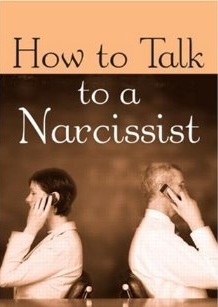 Have you ever known someone who loved himself? I’m not talking about the usual positive self-feelings people have. I’m talking about the guy who has a literal addiction to fame, constantly self-promotes, feels entitled to special treatment, and needs to have everyone gawk at how good looking he is. We all know people like this. They’re what we psychologists call narcissists. Narcissism is on the rise in the United States. American have never loved themselves more than they do now. But is this boost in narcissism isolated to Americans? Today, I learned that narcissism isn’t limited to Americans.
Have you ever known someone who loved himself? I’m not talking about the usual positive self-feelings people have. I’m talking about the guy who has a literal addiction to fame, constantly self-promotes, feels entitled to special treatment, and needs to have everyone gawk at how good looking he is. We all know people like this. They’re what we psychologists call narcissists. Narcissism is on the rise in the United States. American have never loved themselves more than they do now. But is this boost in narcissism isolated to Americans? Today, I learned that narcissism isn’t limited to Americans.
Let me back up a bit. In psychology, there’s been a debate over the past ten years about whether people from Asian cultures cherish self-esteem the same way Americans do. Whereas some people argue that Asians generally don’t think that they’re better than others (a tendency psychologists call self-enhancement). The presumption is that Asians generally include others in the self-concept, so it doesn’t make sense to them to think that they’re better than others. Others assert that Asians self-promote like Americans do. Like many academic debates, this one isn’t going to be resolved any time soon. It does beg an important question: do Asians show signs of narcissism?
According to a presentation by Huajian Cai at today’s conference, narcissism is present in China much like it is in the U.S. The talk, titled “Chinese Self-View: Goodbye to Modesty and Hello to Narcissism,” reported results dispelling the belief that narcissism is unique to Americans. China also has narcissists.
What can we make of this finding? It’s probably too early to tell. The broader question is what effect narcissism has on society. Although many people think narcissism is a good thing, I know better. Narcissists have all sorts of problems relating to others. Just ask anyone who’s been in a relationship with a narcissist. When I talk to college students about narcissism, sometimes they ask whether it’s good to be slightly narcissistic. For example, they tell me “it’s good to be confident.” I agree. But narcissists aren’t confident—they’re overconfident. Feeling that you deserve to be treated kindly is healthy; feeling entitled to special treatment because you’re better than everyone isn’t.
I must admit that it’s slightly comforting to know that narcissism is also present China. In what’s becoming a common theme of this trip, I continue to recognize how connected Americans and Chinese are. This connection begins mostly in how similar our minds work, including our narcissistic tendencies.


